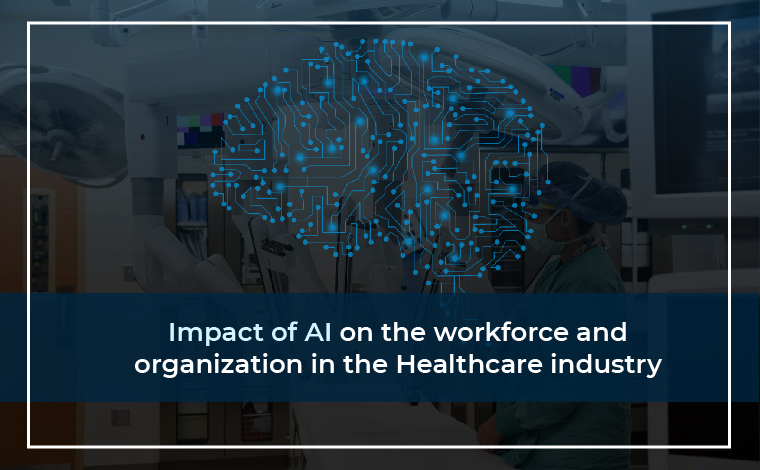


The future of healthcare is rapidly approaching, and hospitals are set to operate with the help of virtual assistance, transforming their current modes of operation. Thanks to the rise of Artificial Intelligence, we can expect significant innovations in healthcare, particularly concerning the healthcare workforce. The way healthcare professionals carry out their tasks will be profoundly influenced by advancements in AI, machine learning, and digital robotics. Many routine tasks can be delegated to technology, leading to an evolution in the roles of health workers.
However, the rise of advanced technology has sparked concerns among healthcare professionals about job security, creating hesitance around embracing AI within the workforce. Many governments and policymakers mistakenly believe that the increased presence of AI will ultimately eliminate jobs, negatively impacting the goal of job creation.
Contrary to these fears, data shows that the rapid integration of Artificial Intelligence is actually generating new employment opportunities, driving a demand for advanced skills. Roles involving caregiving and rehabilitation remain irreplaceable by AI.
The key objective behind incorporating AI into hospital management systems is to support care providers. As AI technology continues to advance, it will create numerous opportunities for the development of new skills. Often, when we think of AI, we envision complex applications and interconnected devices, which fosters misunderstandings about its potential. AI can enhance and refocus the healthcare workforce, enabling professionals to prioritize direct patient care. By automating routine tasks and operations, AI is set to streamline day-to-day responsibilities for healthcare professionals.
The need for such solutions is urgent, as healthcare workers consistently face immense demands. AI can significantly help alleviate the pressures on healthcare staff and address complex healthcare needs, supporting workforce shortages and automating certain nursing functions. Furthermore, AI promises not just to save time, but also to enhance the speed, accuracy, and flexibility of healthcare services, leading to better patient outcomes and increased productivity.
Robotic Process Automation (RPA) can fundamentally change the healthcare workforce by enhancing capacity, reducing operational costs, and minimizing manual errors through the automation of routine, rule-based tasks. By converting data into electronic health records, RPA enables healthcare professionals to devote more time to patient care and address activities that AI cannot handle.
While this shift may lead to a decrease in specialized staffing for certain tasks, it will also open new opportunities for those with different skill sets. RPA is designed to support the human aspect of healthcare rather than replace it.
Clinicians can benefit from the advantages of virtual robots beyond mere automation, as these tools integrate more data into their decision-making. We are already seeing AI-enhanced clinical decision support systems improving diagnosis and disease classification.
In the future, AI is expected to derive more insight from biosensors, electronic medical records (EMRs), and unstructured notes, presenting healthcare workers with a broader context to deliver high-quality, patient-centered care. With these advancements, healthcare professionals will need to adopt new responsibilities and develop digital competencies like agility and data analytics.
The integration of AI into the healthcare sector will bring about new activities and skill requirements, shifting the focus from traditional clinical training to crucial needs like information management, innovation, and multidisciplinary collaboration.
AI has the potential to drastically transform clinical practices by enabling more effective healthcare through algorithmic training. Staff will need to be educated in fundamental digital skills and the basics of data science and genomics.
One of the primary benefits of new technology in hospital management systems is the emphasis on roles that enhance technological scaling. With the fusion of medical and data sciences, entirely new positions can emerge.
Aspects related to data architecture, engineering, and governance will gain significance, requiring skilled professionals to determine how to document and organize clinical data so that algorithms can produce valuable insights.
It is essential for hospitals and health systems to embrace digital assistants within their workforce while maintaining a strong focus on interpersonal skills.
On a Final Note:
With Simbo.ai, the introduction of artificial intelligence can be expanded, bringing the vision of the “healthcare of the future” to life. This evolution is not merely about replacing people with machines; it is fundamentally transformative. Simbo leverages AI to support doctors in every aspect of their work, fostering a sustainable healthcare system that ultimately saves lives and enriches communities!